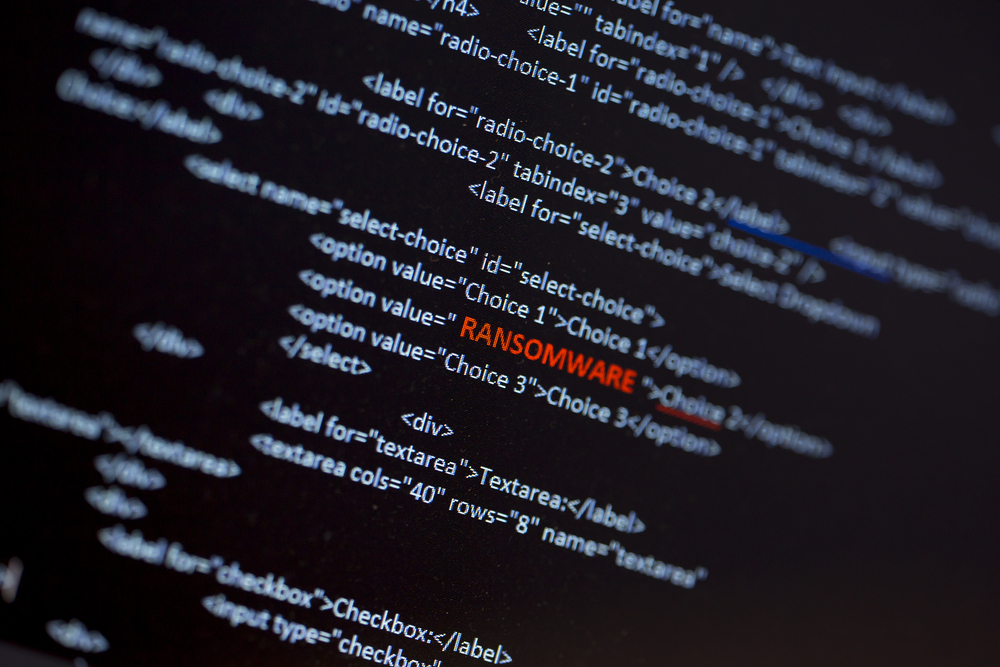QNAP NAS drives targeted by DeadBolt ransomware for the third time this year
The ransomware strain is back and equipped with stronger cryptography for more effective attacks


Taiwanese tech company QNAP has warned that DeadBolt ransomware is targeting owners of its network-attached storage (NAS) drives for the third time this year.
Following initial attacks by DeadBolt in January 2022, QNAP took the highly controversial decision to force-update users’ drives to firmware versions DeadBolt couldn’t successfully exploit.
The campaign then re-emerged in March after a period of downtime, infecting more than 1,000 devices, according to Censys.
The latest ransomware campaign is primarily targeting NAS drives running QTS firmware version 4.3.6 and 4.4.1, QNAP said – a narrower target pool than the initial incident earlier this year.
QNAP also said the affected models were mainly the TS-x51 series and TS-x53 series of NAS drives. The advice given to users who believe they be vulnerable to DeadBolt is to update to the latest version of QTS and avoid exposing their product to the internet.
QNAP officially confirmed the third DeadBolt campaign on 19 May, but Unit 42 researchers said users may have been targeted as early as 13 May.
There has been no substantial analysis of the latest version of DeadBolt, but Unit 42 said the ransomware program made some significant changes since the March campaign.
Sign up today and you will receive a free copy of our Future Focus 2025 report - the leading guidance on AI, cybersecurity and other IT challenges as per 700+ senior executives
Specifically, the DeadBolt program now uses revised JavaScript code with a stronger SHA-256 implementation, building on the previous, lower-level ‘SubtleCrypto’ cryptography. Unit 42 researchers said this was likely changed to a stronger standard to accelerate the key verification process and also to ensure the verification works on browsers that do not support the SubtleCrypto API.
In addition to a revised back end, DeadBolt also has a new ransom note and updated CSS code, along with the same master key as previously used. Unit 42 believes the latest campaign has infected around 3,000 devices.
Quickfire QNAP-DeadBolt overview
QNAP’s NAS drives were targeted by DeadBolt ransomware as of 7 January 2022. At the time, the type of ransomware used against the products was not known and neither was the scope of the attack.
On 25 January, both individual and business users started reporting infections with ransom demands set at 0.3 Bitcoin for individual users, or 50 Bitcoin from QNAP in exchange for the ransomware actors backing down.
RELATED RESOURCE

The sweet spot of modern enterprise computing
Achieve security, reliability, scalability, and sustainability with hybrid IT infrastructure
The next day, QNAP advised all users to update their devices, a day before the company made the controversial move to force-update vulnerable hardware.
The move was met with anger from corners of the QNAP community. Many users had finely tuned NAS configurations that were undone with the update and some complained they were left no more secure than before the company forced the firmware update.
Others were more aggrieved at the company’s decision to force the update in the first place, the main argument being that users should have the choice to update or not, given that it was their product.
According to Censys, the first DeadBolt campaign infected just shy of 5,000 devices and the second affected more than 1,000.

Connor Jones has been at the forefront of global cyber security news coverage for the past few years, breaking developments on major stories such as LockBit’s ransomware attack on Royal Mail International, and many others. He has also made sporadic appearances on the ITPro Podcast discussing topics from home desk setups all the way to hacking systems using prosthetic limbs. He has a master’s degree in Magazine Journalism from the University of Sheffield, and has previously written for the likes of Red Bull Esports and UNILAD tech during his career that started in 2015.
-
 Microsoft wants to replace C and C++ with Rust by 2030
Microsoft wants to replace C and C++ with Rust by 2030News Windows won’t be rewritten in Rust using AI, according to a senior Microsoft engineer, but the company still has bold plans for embracing the popular programming language
-
 Google drops $4.75bn on data center and energy firm Intersect
Google drops $4.75bn on data center and energy firm IntersectNews The investment marks the latest move from Google to boost its infrastructure sustainability credentials
-
 15-year-old revealed as key player in Scattered LAPSUS$ Hunters
15-year-old revealed as key player in Scattered LAPSUS$ HuntersNews 'Rey' says he's trying to leave Scattered LAPSUS$ Hunters and is prepared to cooperate with law enforcement
-
 The Scattered Lapsus$ Hunters group is targeting Zendesk customers – here’s what you need to know
The Scattered Lapsus$ Hunters group is targeting Zendesk customers – here’s what you need to knowNews The group appears to be infecting support and help-desk personnel with remote access trojans and other forms of malware
-
 Impact of Asahi cyber attack laid bare as company confirms 1.5 million customers exposed
Impact of Asahi cyber attack laid bare as company confirms 1.5 million customers exposedNews No ransom has been paid, said president and group CEO Atsushi Katsuki, and the company is restoring its systems
-
 The US, UK, and Australia just imposed sanctions on a Russian cyber crime group – 'we are exposing their dark networks and going after those responsible'
The US, UK, and Australia just imposed sanctions on a Russian cyber crime group – 'we are exposing their dark networks and going after those responsible'News Media Land offers 'bulletproof' hosting services used for ransomware and DDoS attacks around the world
-
 A notorious ransomware group is spreading fake Microsoft Teams ads to snare victims
A notorious ransomware group is spreading fake Microsoft Teams ads to snare victimsNews The Rhysida ransomware group is leveraging Trusted Signing from Microsoft to lend plausibility to its activities
-
 Volkswagen confirms security ‘incident’ amid ransomware breach claims
Volkswagen confirms security ‘incident’ amid ransomware breach claimsNews Volkswagen has confirmed a security "incident" has occurred, but insists no IT systems have been compromised.
-
 The number of ransomware groups rockets as new, smaller players emerge
The number of ransomware groups rockets as new, smaller players emergeNews The good news is that the number of victims remains steady
-
 Teens arrested over nursery chain Kido hack
Teens arrested over nursery chain Kido hacknews The ransom attack caused widespread shock when the hackers published children's personal data